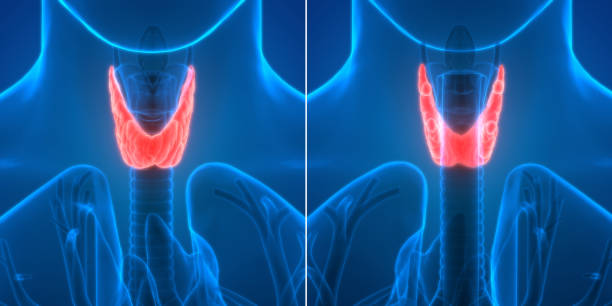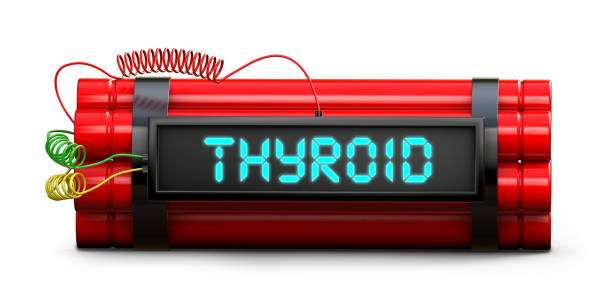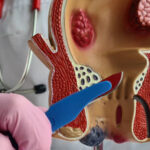Hypothyroidism, also known as an underactive thyroid, occurs when the thyroid gland fails to produce sufficient thyroid hormones. These hormones are vital for regulating various bodily functions, including metabolism, heart rate, and temperature control. Without adequate thyroid hormones, your body’s processes slow down, leading to a variety of symptoms that can impact your overall health.

Symptoms of Hypothyroidism
The symptoms of hypothyroidism often develop gradually over several years, making it easy to dismiss them as signs of aging or other health conditions. However, recognizing these symptoms early can help you seek treatment and manage the condition more effectively. Common symptoms include:
- Fatigue: Persistent tiredness and sluggishness, even after a full night’s rest, is often one of the first signs of hypothyroidism.
- Weight Gain: Unexplained weight gain, despite maintaining the same diet and exercise routine, can be a result of a slowed metabolism due to hypothyroidism.
- Cold Intolerance: An increased sensitivity to cold temperatures may indicate an underactive thyroid.
- Dry Skin and Hair: Hypothyroidism can cause your skin to become dry and your hair to become brittle, leading to hair loss.
- Constipation: Slowed metabolic processes can affect digestion, resulting in constipation.
- Muscle Weakness and Aches: Muscle cramps, weakness, and aches are common symptoms as your body struggles to keep up with its usual activities.
- Depression: Thyroid hormone imbalances can lead to mood changes, including depression or feelings of sadness.
- Memory Issues: Difficulty concentrating and memory lapses are also associated with hypothyroidism.
- Hoarseness and Swelling: A hoarse voice or swelling in the neck may occur if the thyroid gland enlarges (a condition known as goiter).
Causes of Hypothyroidism
Understanding the underlying causes of hypothyroidism is crucial for managing the condition. Several factors can contribute to an underactive thyroid, including:
- Autoimmune Disease: Hashimoto’s thyroiditis is the most common cause of hypothyroidism. In this condition, the immune system mistakenly attacks the thyroid gland, leading to reduced hormone production.
- Radiation Therapy: Treatments for cancer, particularly those targeting the head and neck area, can damage the thyroid gland and result in hypothyroidism.
- Thyroid Surgery: Surgical removal of all or part of the thyroid gland can lead to a decrease in hormone production, causing hypothyroidism.
- Medications: Certain medications, such as lithium, can interfere with thyroid function and contribute to hypothyroidism.
- Iodine Deficiency: Iodine is essential for thyroid hormone production. A lack of iodine in your diet can lead to hypothyroidism.
- Congenital Disease: Some individuals are born with a defective or absent thyroid gland, resulting in congenital hypothyroidism.
- Pituitary Disorder: The pituitary gland produces thyroid-stimulating hormone (TSH), which signals the thyroid to produce hormones. A disorder in the pituitary gland can disrupt this process.
- Pregnancy: Some women develop hypothyroidism during or after pregnancy due to the production of antibodies that attack the thyroid gland.
Managing Hypothyroidism Naturally
Managing hypothyroidism usually involves taking synthetic thyroid hormone levothyroxine to normalize hormone levels. Regular monitoring and dosage adjustments are essential to control symptoms effectively. In addition to medication, certain lifestyle changes and natural remedies can help manage hypothyroidism:
- Diet: Ensure adequate intake of iodine through foods like seafood, dairy products, and iodized salt. Avoid excessive consumption of goitrogenic foods (e.g., soy, cruciferous vegetables) as they may interfere with thyroid function.
- Exercise: Regular physical activity can help combat fatigue, improve mood, and support weight management.
- Stress Management: Practice relaxation techniques like yoga or meditation to reduce stress, which can negatively impact thyroid function.
For a more comprehensive guide on managing hypothyroidism naturally, check out my in-depth video on the Herbeelife – Health and Wellness YouTube channel. In this video, I discuss hypothyroidism’s symptoms, causes, and offer practical tips to help you maintain optimal thyroid health.
Subscribe to Herbeelife – Health and Wellness
Don’t miss out on our latest health and wellness content. Subscribe to our YouTube channel and join our community for more informative videos on various health topics. Click here to subscribe now!
Feel free to ask any questions in the comments below or on our YouTube channel. Your health journey is important, and we are here to support you every step of the way!



